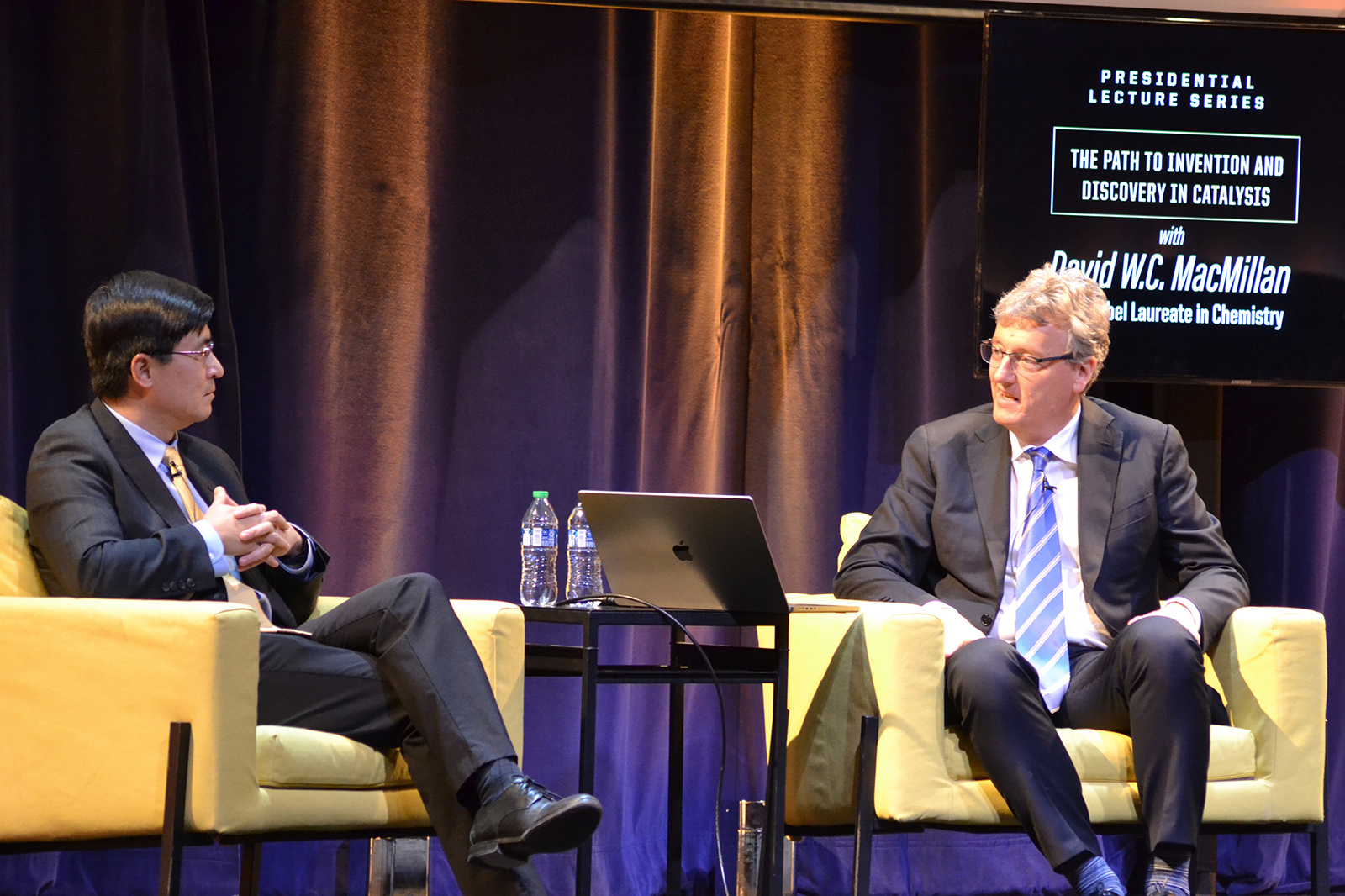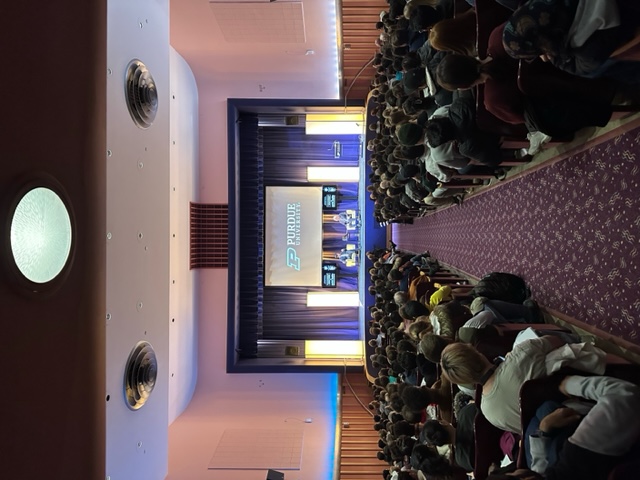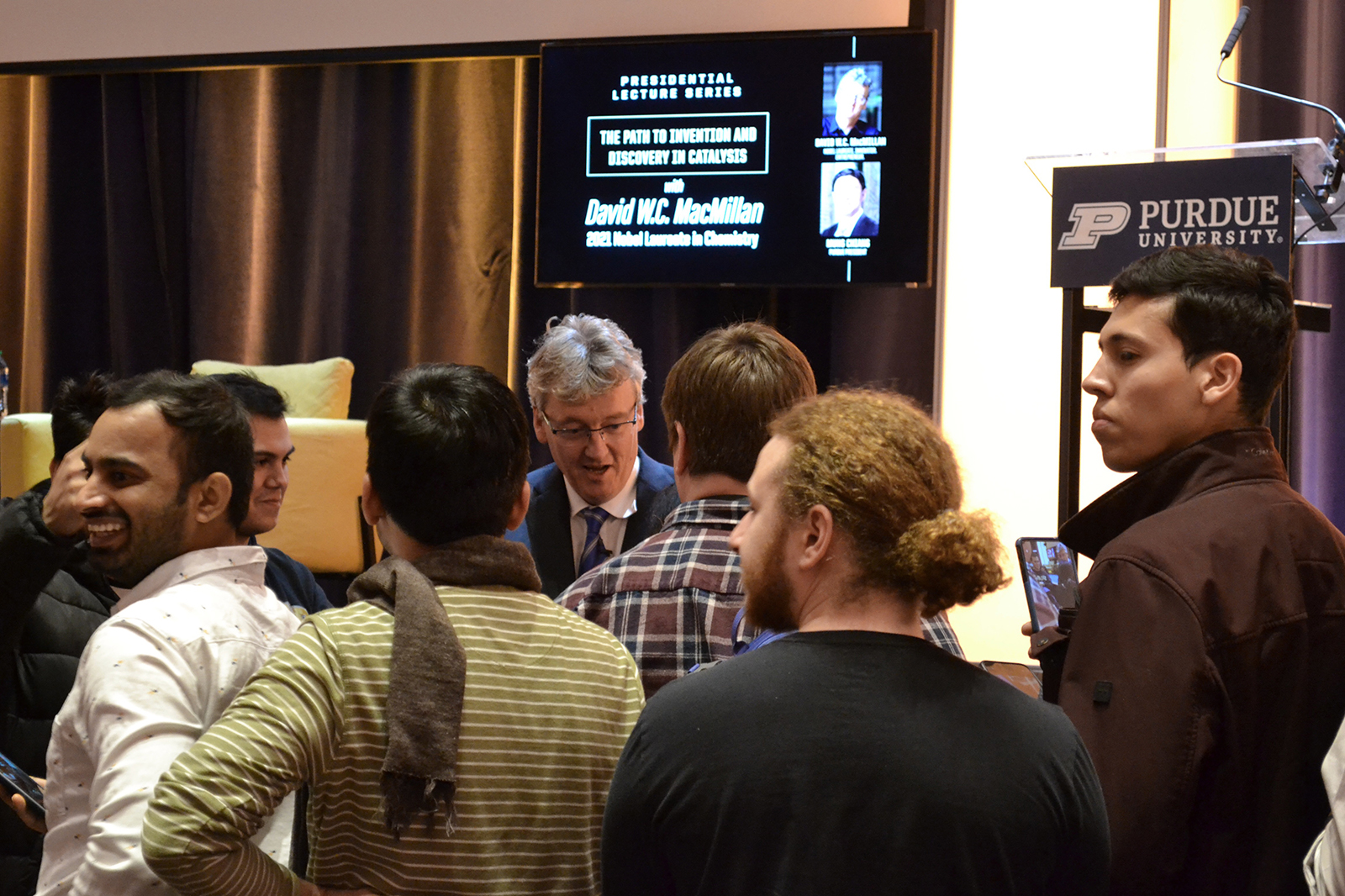February 14, 2023
David MacMillan, the 2021 Nobel laureate in chemistry, joins President Chiang for Presidential Lecture Series

Purdue University President Mung Chiang and David W.C. MacMillan, who shared the 2021 Nobel Prize in Chemistry for his groundbreaking work on catalysis, talk during the first Presidential Lecture Series event of 2023 on Feb. 13 at Stewart Center's Fowler Hall. (Purdue University photo/Phillip Fiorini)
WEST LAFAYETTE, Ind. — Renowned Princeton University professor and entrepreneur David W.C. MacMillan, who shared the 2021 Nobel Prize in Chemistry for his groundbreaking work on catalysis, joined Purdue University President Mung Chiang for a conversation at the first Presidential Lecture Series event of 2023 on Feb. 13.
The discussion with MacMillan, the James S. McDonnell Distinguished University Professor of Chemistry at Princeton, was titled “The Path to Invention and Discovery in Catalysis.” This was the first Presidential Lecture Series event hosted by Chiang, whose administration plans to continue the lecture series launched in 2014 by his predecessor, Purdue President Emeritus Mitch Daniels.
 Purdue University President Mung Chiang and David W.C. MacMillan talk in front of a packed Fowler Hall on Feb. 13. (Purdue University photo/Ellie Acra)
Download image
Purdue University President Mung Chiang and David W.C. MacMillan talk in front of a packed Fowler Hall on Feb. 13. (Purdue University photo/Ellie Acra)
Download image
The Scottish-born MacMillan shared the 2021 Nobel Prize in Chemistry with organic chemist Benjamin List from Germany. MacMillan and List had developed a type of catalysis in 2000 that built on small organic molecules. Using a process called asymmetric organocatalysis, their toolkit now makes it easier to produce asymmetric molecules — chemicals that exist in two versions where, like our human hands, one is a mirror image of the other.
Catalysts are substances that accelerate chemical reactions without becoming part of the final product, an especially important factor for chemists in their efforts to construct molecules. When they are being built, two different molecules actually can form as mirrored images. Chemists often want only one of these mirror images, particularly when producing medicines, but it has been difficult to find efficient methods to do this.
The pioneering process that MacMillan and List developed is helping solve this scientific challenge, paving the way for discovering new drugs and even making molecules that can capture light in solar cells. Chemistry also is made more environmentally friendly because of their innovation.
For his Purdue discussion, MacMillan highlighted the advent and development of asymmetric organocatalysis in his laboratory. As an overview, he explored concepts of chemical reactivity, catalysis and the asymmetry of organic molecules. He also examined the impact of organocatalysis on modern synthetic chemistry and explored the real-world applications of the technology.
Writer and media contact: Phillip Fiorini, pfiorini@purdue.edu, 765-430-6189
 Renowned Princeton University professor and entrepreneur David W.C. MacMillan talks and takes photos with students after the first Presidential Lecture Series event of 2023 on Feb. 13. (Purdue University photo/Phillip Fiorini)
Download image
Renowned Princeton University professor and entrepreneur David W.C. MacMillan talks and takes photos with students after the first Presidential Lecture Series event of 2023 on Feb. 13. (Purdue University photo/Phillip Fiorini)
Download image

